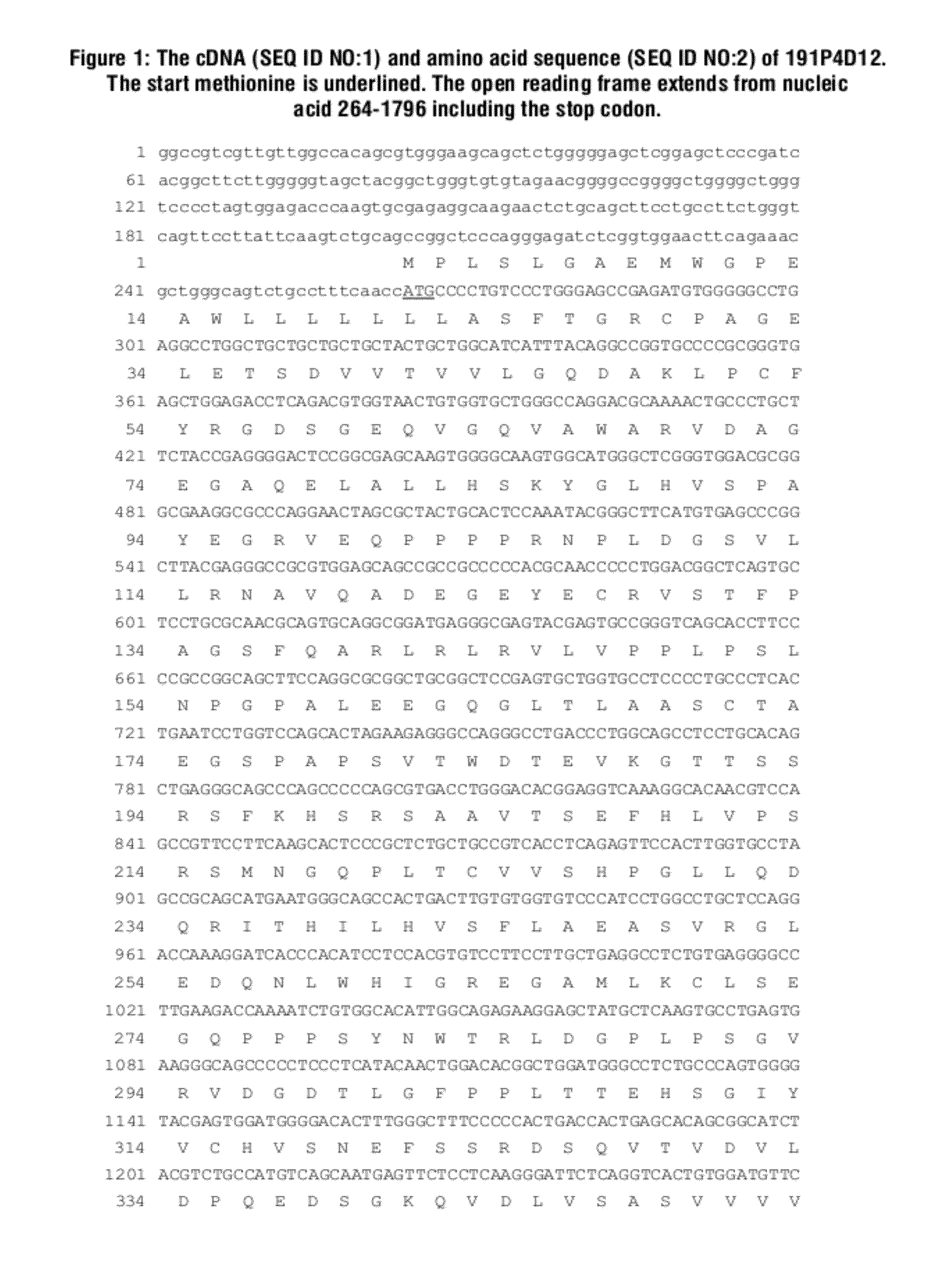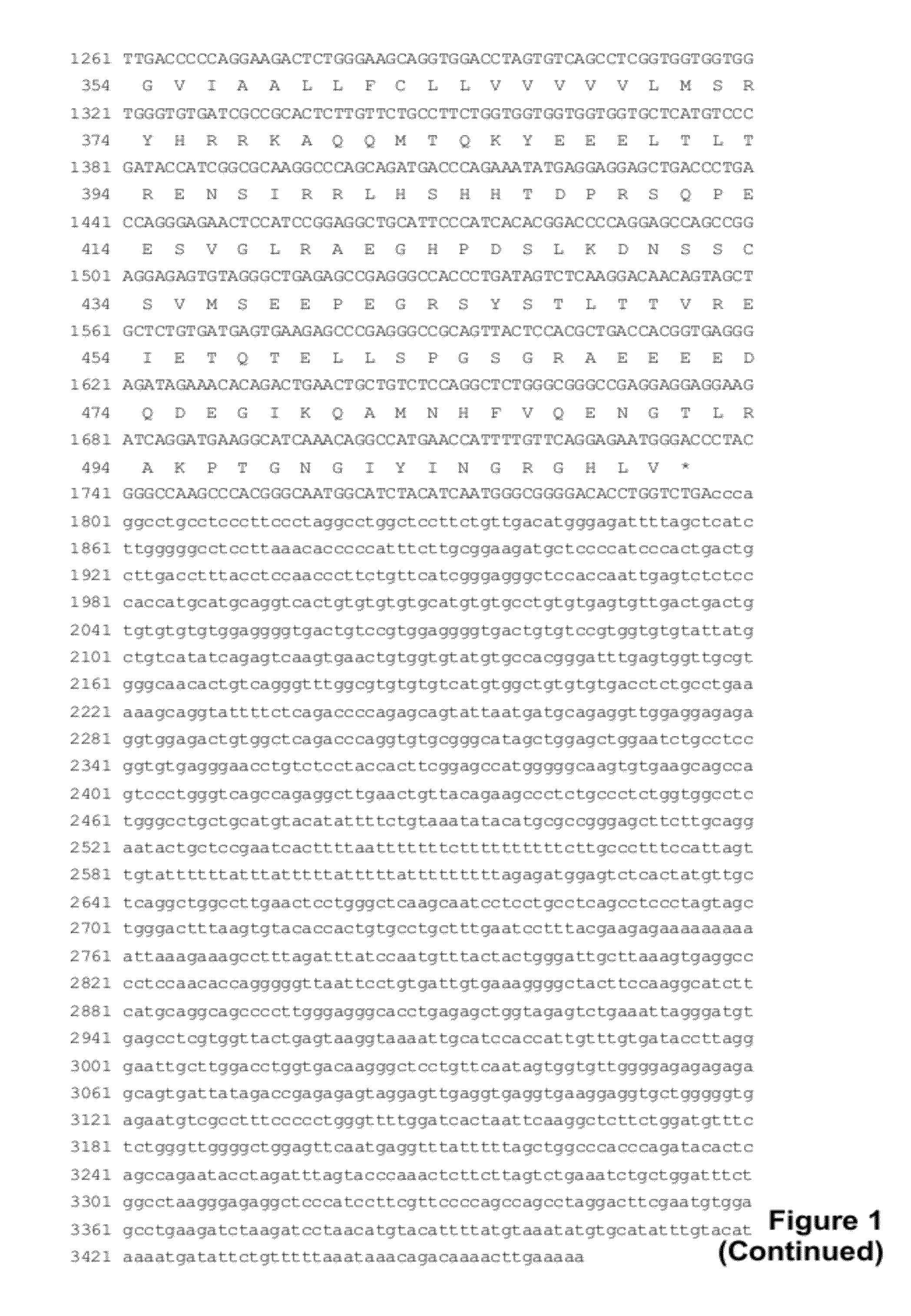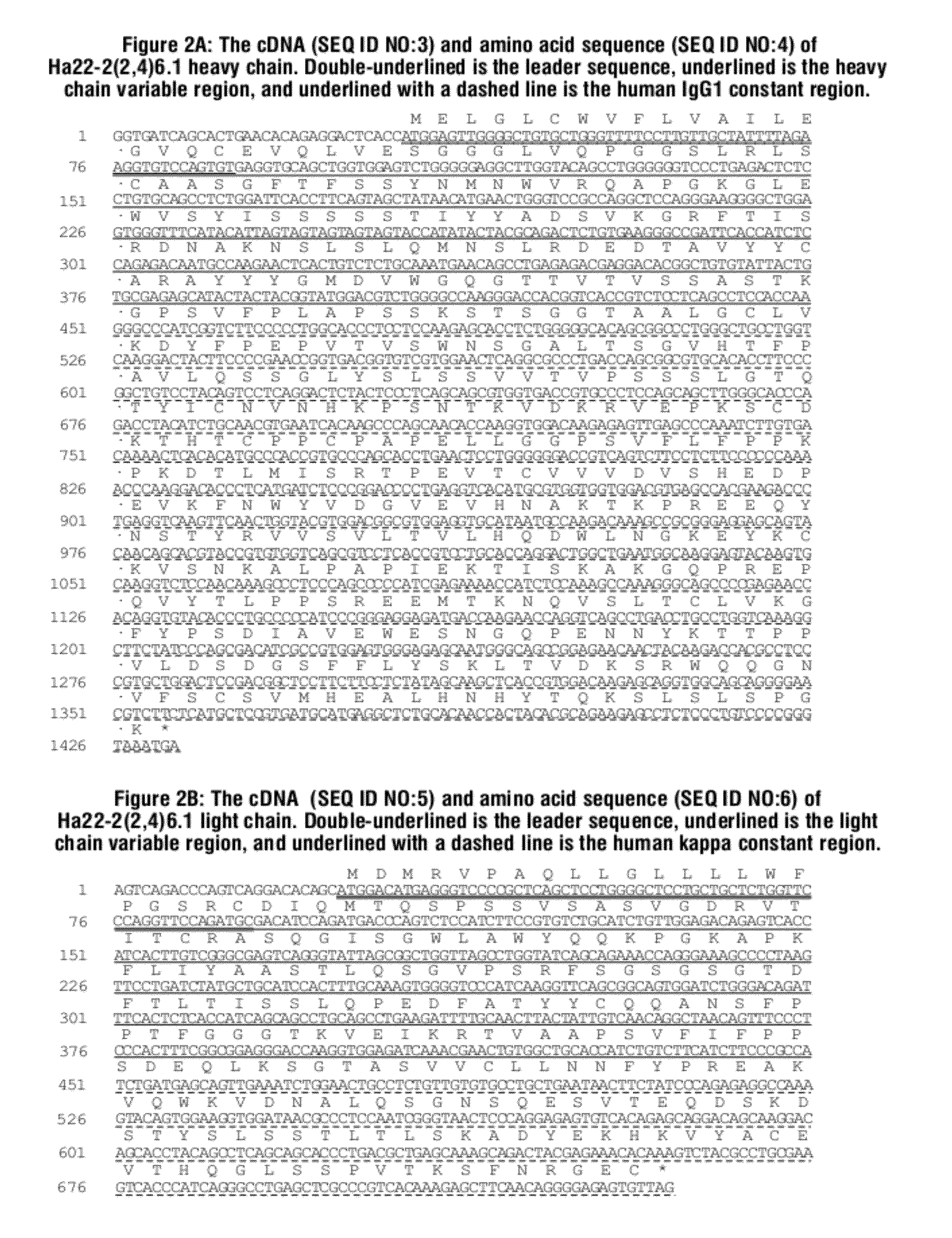Antibody drug conjugates (ADC) that bind to 191p4d12 proteins
a technology of antibody and protein, applied in the field of antibodies, binding fragments, antibody drug conjugates, etc., can solve the problems of ineffective treatment of many patients, undesirable consequences, and still no effective treatment for metastatic prostate cancer
- Summary
- Abstract
- Description
- Claims
- Application Information
AI Technical Summary
Problems solved by technology
Method used
Image
Examples
example 1
The 191P4D12 Antigen
[0462]The 191P4D12 gene sequence was discovered using Suppression Subtractive Hybridization (SSH) methods known in the art. The 191P4D12 SSH sequence of 223 by was identified from a bladder tumor minus cDNAs derived from a pool of nine (9) normal tissues using standard methods. A full length cDNA clone for 191P4D12 was isolated from a bladder cancer cDNA library. The cDNA is 3464 by in length and encodes a 510 amino acid ORF (See, FIG. 1). The 191P4D12 gene shows homology to Nectin-4 gene. For further reference see, US2004 / 0083497 (Agensys, Inc., Santa Monica, Calif.) and PCT Publication WO2004 / 016799 (Agensys, Inc., Santa Monica, Calif.). For exemplary embodiments of the 191P4D12 antigen, see FIG. 1.
example 2
Generation of 191P4D12 Monoclonal Antibodies (MAbs)
[0463]In one embodiment, therapeutic Monoclonal Antibodies (“MAbs”) to 191P4D12 and 191P4D12 variants comprise those that react with epitopes specific for each protein or specific to sequences in common between the variants that would bind, internalize, disrupt or modulate the biological function of 191P4D12 or 191P4D12 variants, for example, those that would disrupt the interaction with ligands, substrates, and binding partners. Immunogens for generation of such MAbs include those designed to encode or contain the extracellular domains or the entire 191P4D12 protein sequence, regions predicted to contain functional motifs, and regions of the 191P4D12 protein variants predicted to be antigenic from computer analysis of the amino acid sequence. Immunogens include peptides and recombinant proteins such as tag5-191P4D12, a purified mammalian cell derived His tagged protein. In addition, cells engineered to express high levels of 191P4D...
example 3
Expression of Ha22-2(2,4)6.1 using Recombinant DNA Methods
[0470]To express Ha22-2(2,4)6.1 MAb recombinantly in transfected cells, Ha22-2(2,4)6.1 MAb variable heavy and light chain sequences were cloned upstream of the human heavy chain IgG1 and human light chain Igκ constant regions respectively. The complete Ha22-2(2,4)6.1 MAb human heavy chain and light chain cassettes were cloned downstream of the CMV promoter / enhancer in a cloning vector. A polyadenylation site was included downstream of the MAb coding sequence. The recombinant Ha22-2(2,4)6.1 MAb expressing constructs were transfected into CHO cells. The Ha22-2(2,4)6.1 MAb secreted from recombinant cells was evaluated for binding to cell surface 191P4D12 by flow cytometry (FIG. 5A). RAT-control and RAT-191P4D12 cells were stained with Ha22-2(2,4)6.1 MAb from either hybridoma or from CHO cells transfected with Ha22-2(2,4)6.1 heavy and light chain vector constructs. Binding was detected by flow cytometry.
[0471]Results show that th...
PUM
| Property | Measurement | Unit |
|---|---|---|
| physical | aaaaa | aaaaa |
| PSA | aaaaa | aaaaa |
| time | aaaaa | aaaaa |
Abstract
Description
Claims
Application Information
 Login to View More
Login to View More - R&D
- Intellectual Property
- Life Sciences
- Materials
- Tech Scout
- Unparalleled Data Quality
- Higher Quality Content
- 60% Fewer Hallucinations
Browse by: Latest US Patents, China's latest patents, Technical Efficacy Thesaurus, Application Domain, Technology Topic, Popular Technical Reports.
© 2025 PatSnap. All rights reserved.Legal|Privacy policy|Modern Slavery Act Transparency Statement|Sitemap|About US| Contact US: help@patsnap.com



